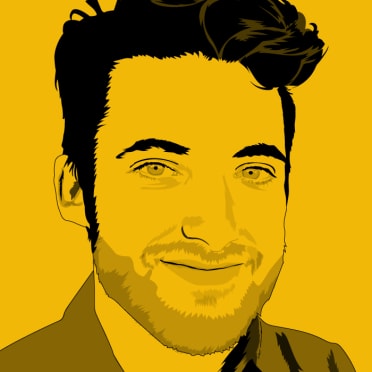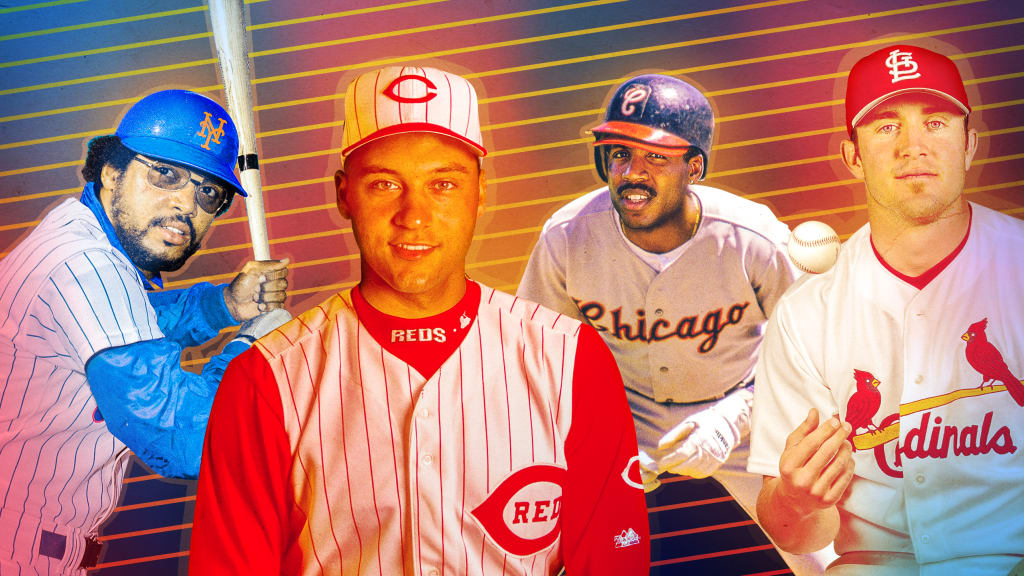
The MLB Draft is, to put it kindly, an inexact science. You try watching a bunch of 18- to 20-year-olds who've only played against other 18- to 20-year-olds and determining which of them will, after several years of growth and development, be able to hang with the best baseball players on the planet. Maybe that starter's third pitch will never develop. Maybe that star athlete will just never figure out how to recognize a breaking ball. Maybe that shortstop's body will look completely different by the time he's a grown man. There were over 1,200 players selected in the 2019 MLB Draft; swings and misses are bound to happen.
Of course, some swings and misses hurt a lot more than others. Every Major League team has that one pick it would love to have back -- one pick that could've landed a Hall of Famer, one pick that could've changed the course of franchise history. What's your club's biggest Draft regret? Read on to find out.
(Note: We're looking for more than simply missing the chance to draft a player who became a star. There are plenty of mitigating factors, from a team's positions of need to how close it is to contending to whether the player was considered a realistic option at that point in the Draft. Being one of the 21 teams who passed on Mike Trout in 2009 won't put you on this list; tabbing Derek Jeter as the top player on your board and then choosing someone else will.)
Angels: Passing on Ted Simmons, 1967
The Angels knew they wanted a catcher with the ninth pick. They opted for North Carolina high schooler Mike Nunn. One pick later, Ted Simmons -- a two-sport star with scholarship offers to play football at Ohio State and Michigan, who a survey of MLB scouts had just dubbed the No. 9 Draft-eligible prospect that year -- went off the board to the Cardinals.
Nunn played five years in the Minors, with all of five at-bats above Double-A. Simmons just got elected to the Baseball Hall of Fame.
Honorable mention: RHP Seth Etherton over C.C. Sabathia, 1998
Astros: Mark Appel over Kris Bryant, 2013
2013 marked the second consecutive year that Houston held the No. 1 overall pick. They'd opted for Carlos Correa in 2012, which worked out pretty well. But what would they do for an encore: dominant Stanford righty Mark Appel, widely regarded as a generational prospect? Or would they go for the best hitter in the Draft, a young third baseman out of the University of San Diego named Kris Bryant?
Houston opted for the former, and while it's impossible to know how it would've turned out -- with the hot corner occupied, do the Astros still draft Alex Bregman in 2015? -- it's hard not to imagine Bryant taking an already star-studded lineup into the stratosphere. (Appel, meanwhile, never made it to the Majors before stepping away from the game in 2018.)
Honorable mention: Scout Hal Newhouser objected so strongly to taking Phil Nevin over Derek Jeter at No. 1 overall in 1992 that he resigned after the pick was submitted.
A's: Ariel Prieto over Todd Helton, 1995
The A's had pretty much settled on Helton, who'd just won the Dick Howser Trophy (and played a little quarterback) at the University of Tennessee, as their man if he made it to the fifth pick. Until the morning of the Draft, that is, when GM Sandy Alderson decided that he wanted to take a pitcher.
Oakland opted for Prieto, a Cuban righty who was thought to be nearly big-league ready. (Prieto's road to the Majors was a circuitous one: He faked an arm injury in the summer of 1994, which allowed him to apply for legal emigration to Puerto Rico and thus become Draft eligible.) He started 60 games over parts of six MLB seasons, going 15-24 with a 4.85 ERA.
Honorable mention: Todd Van Poppel over Mike Mussina, 1990
Blue Jays: Augie Schmidt over Doc Gooden, 1982
It's tough to fault Toronto here -- Schmidt, was that year's Golden Spikes winner, a shortstop out of the University of New Orleans who was pretty universally considered a safe pick at No. 2 overall. His bat never materialized, though, and he retired after five seasons in the Minors. Three picks later, the Mets selected a starter named Dwight Gooden.
Honorable mention: SS Eddie Zosky over Chuck Knoblauch, 1989
Braves: Failing to sign Randy Johnson, 1982
Atlanta has some misses in its past -- passing on Columbus, Ga., native Frank Thomas certainly hurts -- but the team's biggest regret stems from a pick they actually nailed: In the fourth round of the 1982 Draft, the Braves selected a lanky left-handed prep project by the name of Randy Johnson.
They offered him a $50,000 signing bonus, and from the sound of it, the Big Unit was pretty close to accepting at the time.
"It was a big decision," he said during his induction to the Hall of Fame in 2016. "I didn’t have as many control issues in high school because I really hadn’t hit my height spurt at that point."
He wound up going to USC, where he played both baseball and basketball before being selected in the second round of the 1985 Draft by the Expos -- depriving us all of the greatest starting rotation in the history of the game.
Honorable mention: Tyler Houston over Frank Thomas, 1989
Brewers: Missing out on starting pitching, 2011
The good news: Milwaukee had two top-15 picks in the 2011 Draft, just what they needed to retool their starting rotation and vault toward the top of the NL Central. The bad news: Looking for safe, close-to-the-Majors college arms, the team landed on Texas' Taylor Jungmann and Georgia Tech's Jed Bradley. Some starters they could've chosen? José Fernandez, Sonny Gray, Michael Fulmer and Blake Snell.
Honorable mention: J.M. Gold over Sabathia, 1998 (though they'd eventually correct that error)
Cardinals: Shaun Boyd over Chase Utley, 2000
St. Louis held the 13th pick in the Draft, and they'd decided that middle infield was a priority. There were two options: one a high schooler from Oceanside, Calif., raw but a mesmerizing athlete with tools for days; the other a polished college bat, short and squat and a little slow but with an undeniably sweet stroke.
The Cardinals chose option A, Shaun Boyd, who spent eight years in the Minors but never made it to the Show. Option B? Some guy named Chase Utley. (Though a world without this video is a world I don't want to live in.)
Honorable mention: Blake Williams over Adam Wainwright, also 2000 -- although, again, they made up for it
Cubs: Ty Griffin over Robin Ventura, 1988
Chicago was set at second base, Griffin's natural position, but they loved the Georgia Tech product's bat so much that they drafted him anyway with the plan to move him over to third. Of course, that meant passing the best actual third baseman in the Draft in Ventura, who once put up a 58-game hitting streak at Oklahoma State.
As if that wasn't bad enough, Ventura wound up going one pick later ... to the crosstown White Sox, where he commenced never letting the North Siders forget their mistake. (Griffin never could quite pick up the hot corner and fizzled out at Double-A.)
Honorable mention: Doug Glanville over Manny Ramirez in 1991, though Glanville was a pretty good outfielder in his own right
D-backs: Barret Loux over Chris Sale, 2010
Arizona took Loux sixth overall that year, but never signed the Texas A&M product due to injury concerns. The kicker? At the time, team scouts were banging the table for another pitcher: Florida Gulf Coast's Chris Sale, a lefty with wipeout stuff but a delivery that no one could quite make sense of.
“The (mistakes) that really gnaw at me and I still wake up thinking about are the ones in the draft,” former D-backs exec Jerry Dipoto recalled in 2017. “Where you had a scout or multiple scouts in the room telling you, ‘This is the guy.’ You know, ‘We should take Chris Sale.’ We should have.”
Honorable mention: Passing on Madison Bumgarner for another starter, Jarrod Parker, in the 2007 Draft wasn't great either, but at least Madbum found his way to the desert eventually.
Dodgers: Erik Sonberg over Roger Clemens, 1983
In the Dodgers' defense, they weren't the only ones: Despite a sterling career at the University of Texas, Clemens was somehow just the 10th pitcher taken in the '83 Draft. But L.A's version of the story is probably the most painful.
According to then-scouting director Ben Wade, the team had its sights set on the Rocket at pick No. 18. But reliever Steve Howe's substance abuse issues meant the team needed a lefty who could slot into its bullpen as soon as possible, and so the Dodgers settled for Sonberg, who'd just carried Wichita State to the College World Series. Just one pick later, Clemens went to the Red Sox.
Honorable mention: Tom Goodwin over Mo Vaughn, 1989
Giants: Tony Torcato over C.C. Sabathia, 1998
You could go with Mark McGwire here, who San Francisco passed on in 1984 for an outfielder named Sam Cockrell ... only to watch Big Mac go one pick later to the rival A's and blossom into a star. If the Giants had gone that route, though, they likely don't draft a first baseman the next year, which means they don't draft Will Clark, and we're not prepared to live in that universe.
Instead, let's go with Sabathia, who dominated in both baseball and football at Vallejo High -- about 30 miles north of Oracle Park. The big lefty became pretty convinced that the Giants were going to draft him, but they (like a lot of teams) had concerns about Sabathia's weight, and so they picked a different local prospect instead: Woodland outfielder Tony Torcato, who recorded all of 53 plate appearances in the big leagues.
Honorable mention: RHP Joe Fontenot over Roy Halladay, 1995
Indians: Beau Mills over Jason Heyward, 2007
How exactly did Heyward -- a physical marvel who blossomed into a generational prospect before putting together a long, productive MLB career -- slip all the way to the Braves at 14th in the 2007 Draft? The teams in front of them had a hard time seeing him swing the bat.
"He’d go into a game and they’d walk him three times and he’d ground out or fly out, and you had a scouting director there who said ‘I don’t even know what to write up," Al Goetz, a Braves area scout at the time, recalled.
Cleveland officials, specifically, told Baseball America that they simply hadn't seen enough of Heyward to make him the pick. They instead chose another right fielder, Beau Mills, at 13th overall. Mills never reached the Majors, while Heyward went to Atlanta at No. 14.
Honorable mention: Pitcher Tom Brennan over Dale Murphy, 1974
Mariners: Jeff Clement over Troy Tulowitzki (and others), 2005
Sorry in advance, Seattle.
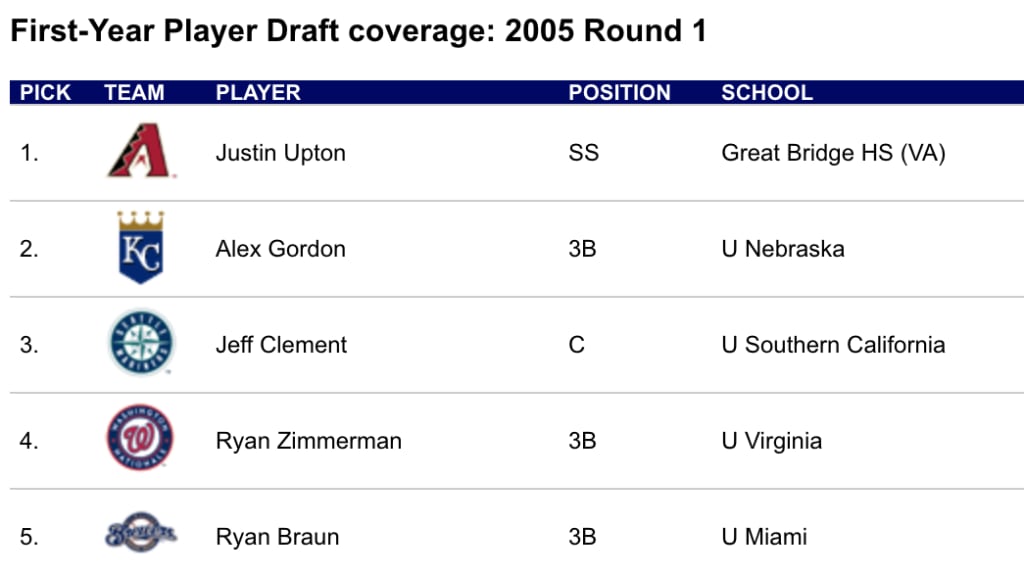
Ouch. The salt in the wound: In the days leading up to the Draft, the Mariners front office appeared to be locked in on another future All-Star, Troy Tulowitzki. But the team decided that it wanted a catcher instead, selecting Clement, who hit .218 in parts of four seasons in the bigs. (Tulo went to the Rockies at No. 7.)
Honorable mention: Passing on Kirk Gibson for another outfielder, Tito Nanni, 1978
Marlins: Josh Booty over Nomar Garciaparra, 1994
The Marlins were another team that could've had Heyward -- one of their scouts was very much on board -- but let's instead go back to 1994, the team's third-ever Draft. Florida held the fifth pick, and opted for a shortstop ... just not the one they should have. The team selected Josh Booty, a prep star out of Louisiana who hit just .198 in the Minors and appeared in 13 MLB games. Off the board at No. 12? A college star out of Georgia Tech by the name of Nomar Garciaparra.
Honorable mention: Heyward, 2007
Mets: Steven Chilcott over Reggie Jackson, 1966
In just their fifth year of existence, New York found itself with the first overall pick in the 1966 Draft and a tough choice to make: Chilcott, the rare catcher with left-handed power, or Jackson, who tore up the college ranks at Arizona State.
The Mets landed on Chilcott. The reason? "It was a position pick," Mets executive Joe McDonald explained at the time. "We did not feel that we had an adequate catching prospect in the organization."
Chilcott seemed destined to make good on those scouting reports, until an injury to his throwing shoulder derailed his career. Jackson, well, you know.
Honorable mention: Paul Wilson, erstwhile member of Generation K, over Nomar, Konerko and others with the No. 1 pick in the 1994 Draft
Nationals: Ross Detwiler over Madison Bumgarner, 2007
With apologies to the Expos, we'll stick with just the D.C. era here. The Nats looked hard at Bumgarner leading up to the '07 Draft, but they were spooked by indications that he'd demand too high a signing bonus, so they chose Detwiler -- a lefty out of Missouri State who was a bit safer and a bit cheaper -- instead.
Honorable mention: They drafted Strasburg, Harper, Rendon and Giolito over a five-year span, so this is relative, but let's say failing to sign ninth-overall pick Aaron Crow in 2008
Orioles: Billy Rowell over Tim Lincecum (and Max Scherzer), 2006
Rowell stood 6-foot-5, seemingly crafted in a lab to mash baseballs, which he did as a prep star in southern New Jersey. Baltimore took him ninth overall, only to watch him fail to make it out of Double-A. The two guys picked directly after him? Just a couple Cy Young winners.
Which would be bad enough, except Rowell's struggles were one reason why the O's -- and plenty of other teams -- were a bit more wary of cold-weather bats from areas that didn't traditionally churn out baseball talent. Which is how you get Mike Trout falling to 25th overall in 2009.
Honorable mention: Opting for lefty Chris Smith after missing out on their top choice, Mark Teixeira, in 2001
Padres: Matt Bush over Justin Verlander, 2004
'04 was considered a two-player draft, and rather than deal with Verlander's agent, Scott Boras, the Padres decided to take Bush -- who'd starred as a shortstop at nearby Mission Bay High -- No. 1 overall. But the hometown kid struggled both on and off the field, and the team traded him before he even reached Double-A. It seemed like legal troubles would knock him out of the game for good, but he finally managed to reach the Majors in 2016 after reinventing himself as a flame-throwing reliever. (Verlander, meanwhile, turned out to be worth the $3.12 million Detroit signed him for as the second overall pick.)
Honorable mention: One pick after the Blue Jays took Augie Schmidt in 1982, the Padres selected Jimmy Jones -- another pitcher -- over Dwight Gooden
Phillies: Jeff Jackson over Frank Thomas, 1990
Philly was as impressed as everybody else with Thomas, who hit .403 in his final year at Auburn. But ... well, we'll let then-director of scouting Jay Hankins explain.
"We had a young first baseman named Ricky Jordan and needed a center fielder," Hankins told the Chicago Tribune.
That center fielder was Jackson, a five-tool star at Simeon in Chicago, who the team selected fourth overall. But Jackson struggled mightily at the plate, never making it past Double-A, while Thomas went three picks later to the White Sox.
Pirates: Brad Lincoln over Clayton Kershaw, 2006
Pittsburgh wanted a pitcher with the fourth pick, and among the group they seriously considered was Kershaw -- who the team even went so far as to administer a personality test to in the lead-up to the Draft. But for as wicked as his curveball was, he was still a gangly high schooler, and the Pirates -- who'd just watched the lefty struggle in a state playoff game -- wanted more of a sure thing. So they went with Lincoln, out of the University of Houston, instead. Lincoln started 22 games over five Major League seasons, compiling a 4.74 ERA.
Honorable mention: Pitcher Bryan Bullington at No. 1 overall in the 2002 Draft, five spots ahead of Zack Greinke
Rangers: David Clyde over multiple Hall of Famers, 1973
Clyde was a sensation at Houston's Westchester High School, spinning five no-hitters over his varsity career -- including two perfect games. Rangers owner Bob Short, sensing a PR opportunity, pounced, taking Clyde with the No. 1 overall pick and signing him to a hefty-at-the-time $65,000 bonus. It came with a condition, though: Clyde's first start out of high school would come in the Majors.
The lefty was a sensation; traffic was so snarled outside Arlington Stadium for his debut that first pitch was delayed to give everyone more time to get into the park. But it came at a cost: Not only did Clyde struggle without any seasoning in the Minors -- he'd thrown his last MLB pitch by age 24 -- but Texas had passed on Robin Yount and Dave Winfield, both of whom went in the top five in 1973.
Honorable mention: Pitcher Jonathon Johnson over Roy Halladay, 1995
Rays: Tim Beckham over Buster Posey, 2008
One year after taking David Price No. 1 overall, Tampa Bay again found itself with the top overall pick, and this time they'd narrowed it down to two choices: uber-athletic prep shortstop Tim Beckham, or Florida State catcher Buster Posey. Rays scouts -- who'd missed out on Andrew McCutchen back in 2005 due to caution around drafting a high schooler -- banged the table for Beckham, and the rest is history.
Honorable mention: Wade Townsend over Andrew McCutchen, 2005
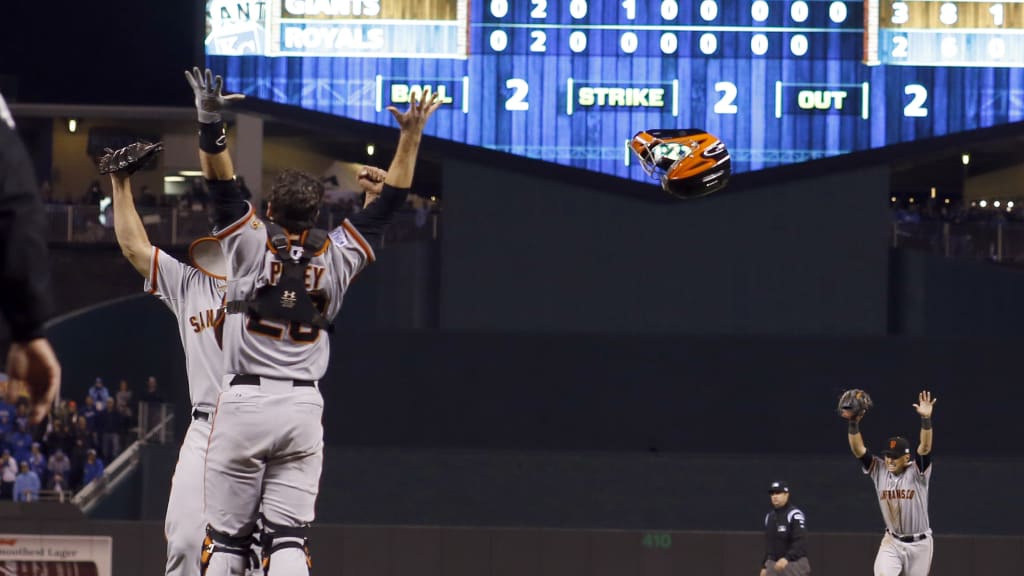
Red Sox: Andrew Yount over Roy Halladay, 1995
Yount was in demand heading into the 1995 Draft, a flamethrower who drew comparisons to a current Red Sox great: Roger Clemens. But he struggled with his command upon entering the Minors, and a freak accident to his pitching hand derailed his career.
Honorable mention: RHP Bob Parkins over Todd Worrell, 1982
Reds: Chad Mottola over Derek Jeter, 1992
Gene Bennett tried to tell them. Cincy's long-time scout went to the mat for Jeter as the prep shortstop fell to the Reds at No. 5 overall. But the front office was unconvinced, taking outfielder Chad Mottola instead. Mottola put up a .607 OPS in parts of five seasons in the Majors.
Honorable mention: Starter Chris Gruler three picks ahead of Zack Greinke in 2002
Rockies: Greg Reynolds over Evan Longoria, 2006
Longoria was the highest-rated player on the Rockies' board with the second pick. There was just one problem: Colorado brass felt that the team simply had too many third basemen after using a top-10 pick on an infielder in each of the past three Drafts. They settled on Stanford ace Greg Reynolds, who owns a 7.01 career ERA.
Honorable mention: Vandy reliever Casey Weathers over Madison Bumgarner, 2007
Royals: Jeff Austin over J.D. Drew, 1998
One year after he'd shocked the baseball world by refusing to sign with the Phillies, who'd taken him second overall but couldn't come to terms on a signing bonus, Drew reentered the Draft as arguably its most sought-after player. (Hitting .455 in your final year at Florida State will do that.)
Kansas City held the fourth pick in 1998, but passed on Drew, believing that they couldn't sign him. He fell to the Cardinals at No. 7 -- where he'd go on to become a wildly underrated (if oft-injured) hitter -- while the Royals selected right-hander Jeff Austin, who posted a 6.75 ERA over parts of three MLB seasons.
Honorable mention: RHP Kyle Snyder over Barry Zito and Ben Sheets, 1999
Tigers: Cameron Maybin over Andrew McCutchen, 2005
No disrespect to Maybin, who not only carved out a respectable big league career of his own but also became part of the package that brought Miguel Cabrera to Detroit. Still, Detroit scouts were rumored to like McCutchen, who went just one pick later to the Pirates.
Honorable mention: Andrew Miller over Clayton Kershaw in 2006, although again: Miguel Cabrera is a nice consolation prize
Twins: Bryan Oelkers over Dwight Gooden, 1982
"Everybody likes a high school pitcher during the spring," said Logan White, now the Padres' director of player personnel, when asked how Kershaw fell to him and Dodgers back in 2006. "But when they get into the room with the GM and everyone, the thinking starts going that the high school pitcher might not make it or that he might be too far away."
Case in point: Oelkers over Gooden. The latter was a phenom, lighting up high school fields in Florida with an unheard-of fastball. But Twins VP of scouting George Brophy thought that Oelkers, the college pitcher of the year at Wichita State, was safer, closer to the Majors, and so he passed on Doc. Oelkers appeared in just 45 games, posting a 6.01 ERA. But years later, Brophy stood by the pick.
″It was an obvious choice,″ he told the AP. ″Bryan Oelkers had been the college pitcher of the year. He was exactly what we needed. Sure, now everybody asks why we didn’t get Gooden. But he was still in high school, and I’ll bet there haven’t been 10 high-school pitchers to make it big. The Mets caught lightning in a bottle that day.″
Honorable mention: Failing to sign No. 1 overall pick Tim Belcher in 1983, only to watch the Yankees snatch him up with the top pick a year later
White Sox: Kurt Brown over Barry Bonds, 1985
Time to play the "picture's worth 1,000 words" game again.
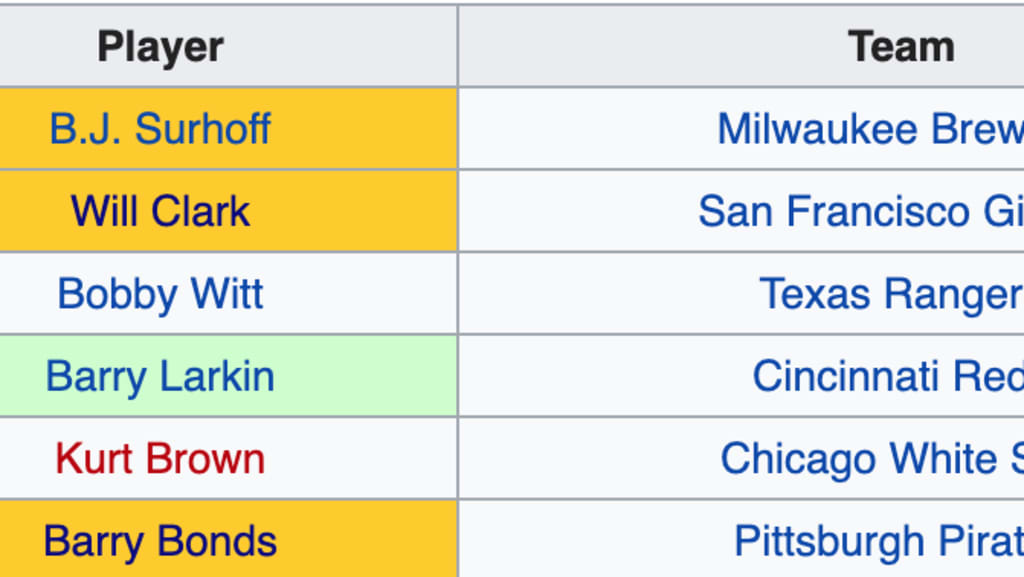
The top of the '85 Draft was a historic collection of talent. And in the midst of all that, the White Sox came away with Kurt Brown, a catcher who put up a .631 OPS over seven Minor League seasons.
Brown was actually a remarkable athlete, on his way to Long Beach State to play football before Chicago convinced him to sign for $150,000. So what happened? As he told the Kansas City Star in 2004, he caught the yips.
"It's psychological," Brown said. "I stepped out on the diamond one day. Who knows how many balls I'd thrown back to the pitcher? I threw 300 back every night in front of 5,000 to 10,000 people, and that night I got scared to do that. Your body does strange things. There's a bowling ball in your stomach. Your hands start shaking. Your heartbeat raises. You feel like you're going to throw up. Your chest tightens."
Honorable mention: Taking center fielder Jared Mitchell two picks before the Angels took a center fielder named Mike Trout -- which, speaking of ...
Yankees: Missing out on Mike Trout, 2009
New York had its eye on the New Jersey native in the run up to the 2009 Draft -- one of their area scouts had even personally coached Trout during his prep career. But the Yankees wouldn't be on the clock until the 29th pick, and the Angels swooped in at No. 25 ... with the pick that New York had given L.A. as compensation for signing Mark Teixeira as a free agent.
Honorable mention: Taking SS Bronson Sardinha four picks before the Mets took David Wright, thereby missing out on the intra-city trolling opportunity of a lifetime
